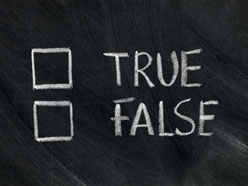
A version of this was originally published on Conseiller.ca.
In the wake of CRM2, investors will receive more detailed information about the fees they’re paying to their advisors. And, as a result, some may use checklists and tools to figure out whether they’re paying too much for what they’re getting.
Read: MFDA releases CRM2 client guide
To properly assess fees, both the amount being charged and the value of the advice being received needs to be considered. The issue is some basic checklists for investors may not be detailed or nuanced enough.
“Many of the questions asked are similar to judgments,” says Flavio Vani, president and spokesperson of the Professional Association of Financial Services Advisors (PAFSA), in reference to one particular checklist provided by a media outlet.
“Let’s take [this] question: [Do] I hear from my advisor at least once a year? If my client has $10,000 in a TSFA [and] that doesn’t change, what’s the point of my contacting him more than once a year? Conversely, if another client has two million dollars in funds and I only communicate with him once a year, then I’m not doing my job.”
“The checklist is too superficial,” says Tony Tiberio, Financial Security Advisor at Services Financiers Tiberio Mecca, referring to the same item. “It doesn’t take client psychology into account. Not everyone needs the same level of attentiveness and advice. Not everyone reacts the same way when the market gets carried away.” When it comes to how responsive an advisor is, for example, “responding to my client within 24 hours doesn’t make me a good advisor. If I take two more days to formulate a well thought-out answer, I’m a much better advisor,” he explains.
Read: CRM2 primer: Talk performance like a pro
Also, if there are only yes or no questions on a checklist, that doesn’t account for reality where everything is a question of nuances.
Read: 5 ways to use CRM2 for better conversations
Courtesy vs. expertise
Speaking about the same checklist, Tiberio says it’s merely a list of tasks that all advisors should be doing, whereas the value of advisors resides in their ability to tailor service to every client and situation. “Responding in less than 24 hours is just touching base, not providing information,” he insists. “It’s demonstrating courtesy, but it has nothing to do with expertise.”
Overall, it doesn’t go deep enough, say the advisors.
Vani says, “Advisor remuneration isn’t just for the advice he gives regarding the choice of a fund. Advisors give advice on insurance, divorce, accidents, illness, death, and more. There are many kinds of advisors. […] Our value can’t be expressed by twenty-odd yes-or-no questions.”
Read: Knowing, communicating and pricing your value
Educational role
Pointing to the same checklist, Pierre-Olivier Cloutier, financial security advisor at Investors Group, says it’s “interesting” but doesn’t ask about important value-added services such as the task of educating clients.
“I would suggest making a few additions, such as ‘Does my advisor have the necessary support to find answers to my questions if he’s unable to do so on his own?’ and ‘My advisor puts my interests before his own,’” he adds. “Or how about, ‘Does my advisor keep me informed about financial and planning concepts?’ and ‘Does he help me develop my knowledge?’”
Read:
Vani agrees, saying, “There are so many things advisors do [that goes] above and beyond [advice on] funds. The checklist could really go on and on. But there’s one notion, in particular, that I would like to see added, and that’s ‘Does my advisor tell me about various plans to help me save money, like RRSPs, RESPs and TFSAs, and does my advisor help me with succession planning and related matters?’”
As for a question regarding a client’s spouse’s views and goals, Vani doesn’t see the relevance. “What does that have to do with my client’s investments? He’s not appearing before a notary, as far as I know.”
(For help educating clients, share our AdvisorToClient economic package.)